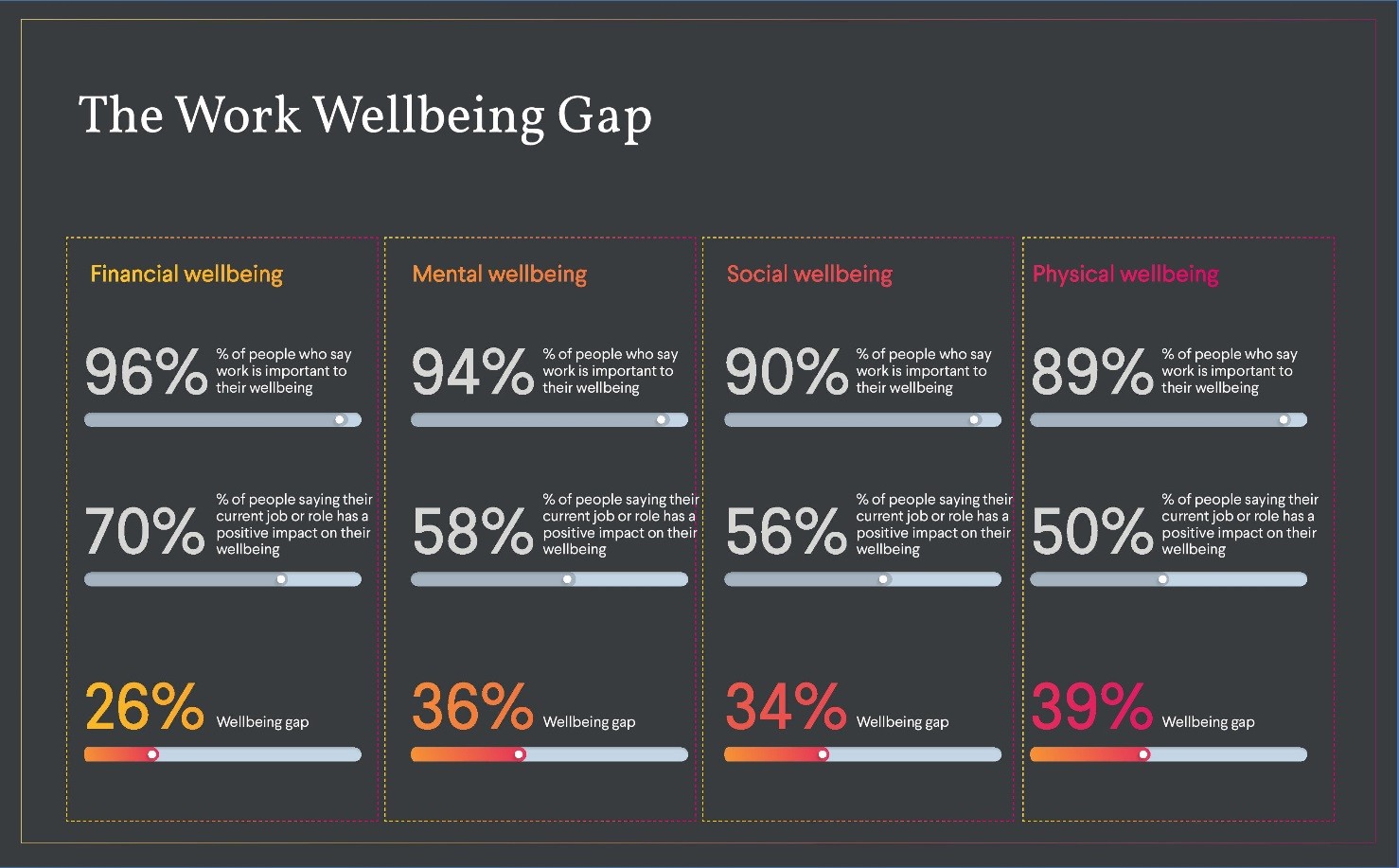A fifth of employees dread going to work
17 Oct 2018
- 21% of workers questioned said they dread going to work; 32% of millennials and 38% of gig workers feel like this about their job
- Physical wellbeing shows the highest gap between what workers expect and what they experience
- 39% of people said satisfaction with their job had the greatest positive impact on their wellbeing
A large work-wellbeing gap between what employees expect from their workplace, and the experience they are having has been identified in analysis undertaken by Hymans Robertson, the leading benefits and risk consultancy, and yulife, an innovative new lifestyle insurer, as they call on employers and insurers to do a lot more to improve the nations wellbeing.
In the research 53% of those questioned said they would always choose an employer that positively contributed to their wellbeing, even if it meant earning less money. Yet in the same survey a fifth (21%) of employees stated that they actually dreaded going to work.
The work-wellbeing gap was defined as the difference between how important work in general is to people’s wellbeing in different categories and the extent to which their current role is actually having a positive impact on their wellbeing in these areas. The research looked at four areas – financial, mental, social and physical wellbeing - and identified that workplaces were failing to meet expectations in all areas (see below). The greatest of these gaps was in physical wellbeing at 39%, recognising that many of us are not sufficiently active at work.
Click to expand
Commenting on the findings, Richard Purcell, Insurance Innovation Lead, Life and Financial Services, Hymans Robertson, said:
“With such a high proportion of people saying that they dread going to work, clearly a lot more can be done by employers and insurers to encourage a more positive and healthy workforce. It isn’t surprising that work is most important to people’s financial wellbeing given its role in earning money, however mental, social and physical wellbeing were not far behind. While the financial wellbeing gap was the smallest, it was still a sizeable quarter of people (26%) who said work didn’t fulfil that. Employers should recognise that the needs of the workforce are changing and look at ways they can create a working environment that contributes more positively to people’s wellbeing.”
One key finding from the survey was that well over a third of people (39%) said that satisfaction with the job itself had a positive impact on feeling of wellbeing at work. This was followed closely by friendships with colleagues, identified by a third (32%) of respondents, and the ability to work flexible hours (29%). The majority of people questioned are now enjoying the flexibility of being able to work from home at least occasionally. Good holiday allowance, which is often the focus for benefits packages at work was lower down in the list but a quarter (23%) said this had an impact on their wellbeing.
For many people the lack of wellbeing at work has an impact on whether they want to go work at all. For many people going to work is something they dread with a fifth of people (21%) saying this according to the research. As many as a third (32%) of millennials and 38% of gig workers claim that they feel like this, perhaps reflecting that many of the jobs held both by younger people and those who move from job to job as gig workers do, provide fewer of the factors that contribute to the feeling of wellbeing.
Explaining how employers need to learn from the importance of wellbeing, Sammy Rubin, CEO, yulife, says:
“When it comes to the Nation’s wellbeing, work is definitely a source for social good. Our joint research backs this up. Over over a third of say that job satisfaction positively influences their wellbeing and over half confirm they would choose an employer’s wellbeing benefits over a higher salary. The fact a wellbeing gap exists highlights the need for employers to focus more closely on what their people want. It’s not necessarily all about salary but more about making mental, physical, and financial wellbeing simple, accessible and inclusive for everyone. After all a healthier workforce makes for a happier work culture which makes getting and keeping the right people easier as well as increasing productivity and lowering sickness absence which is good for everyone.”



0 comments on this post